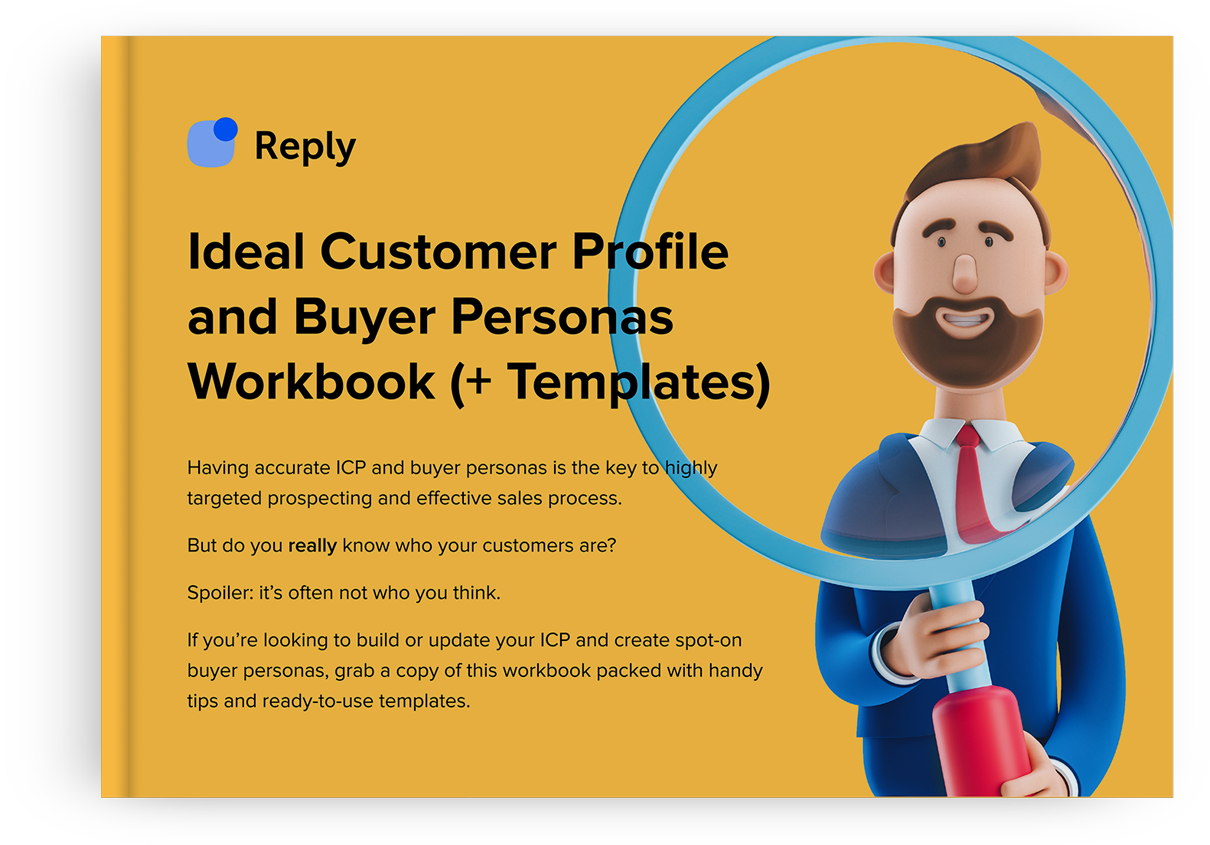Sales intelligence can quickly reveal a potential client’s key criteria, whether that’s demographic, firmographic, technographic, or any other type of information used to identify your potential customers. As a result, you can spend less time talking to people who were never going to buy and more time with high-value prospects.
You can also use sales intelligence to ensure that you’re talking to the actual decision-makers within your target company, reaching out to them using their direct contact details.
2. Connect at the perfect time
Timing is key to a successful sale — even a dream customer who loves you and your product isn’t going to buy if the time isn’t right. This could be because they’ve already used up all of their allocated budget for the year, or they simply might not see any urgency in making a purchase.
Instead of trying to convince a prospective customer that now is the right time to buy, it’s far more efficient to look for people who are already actively looking for a solution like yours. When you use sales intelligence to see who’s showing buyer intent, your sales pitch will be welcomed rather than ignored.
This could be as simple as tracking company changes, such as keeping an eye on their social media profiles, setting up a Google alert for news items that mention your prospect’s company, or using a company database to monitor important details. Then, when there’s a change relevant to your solution, you can reach out and introduce your services.
Similarly, you can use behavioral analytics to identify website visitors and their activity. For example, someone who spends a lot of time on your product pages, reading case studies, and checking out reviews may be comparing potential solutions. By taking the initiative to contact them, you could get an edge over your competitors.
3. More personalized messaging

The more you know about your prospects, the better you can tailor your outreach. This means more than just using their first name and mentioning their company name. Rather than sending out generic and vague messages, you can use the insights from your sales intelligence to address their biggest concerns and add genuine value.
For example, if you know that a prospective customer is opening a new location, you can reference this in your email and highlight how your solution could aid the process. If a lead arrives on your site after searching for information on how to solve a particular problem, you can share some relevant resources to help them achieve their goal.
When combined with a targeted outreach campaign delivered at the right time, the effect of a personalized message can be extremely powerful. This isn’t just limited to sales though; from marketing to customer success, different teams can use these insights to add a personal touch that will stand out from the competition.
4. Shorter sales cycles
Having the right information on hand can speed up virtually every aspect of the sales process. For example, rather than spending hours researching every potential lead and their business, sales intelligence platforms do all that work for you. Not only can you focus more on creating compelling and relevant messaging, but you can also do it far quicker.
Rather than reaching out to potential customers and then going into a long nurture sequence while you wait for everything to align, you can save time by talking to prospects who are ready to buy right now.
This can also help with inbound leads. While inquiry emails or forms may provide you with little more than a name and an email address, sales intelligence tools can enrich that information with additional insights that you can use to qualify inbound leads and respond effectively. The result is more productive reps making more sales in less time.
5. Accurate data

Sales intelligence isn’t just about hoarding as much data as possible. Instead, you need to collect relevant and actionable information. To be useful, the information must be accurate and up to date. After all, even the best sales pitch will fail if you’re using the wrong name.
This can be a real challenge; contacts may get promoted and move to a different department or a different company altogether. A company’s internal (and often invisible) decisions might end up dramatically changing its priorities overnight, making all the data and “insights” you previously uncovered practically useless.
The best sales intelligence software solves this by providing real-time updates to your data, aggregating information from multiple sources into one central location, so you can be confident you’re always talking to the right person with relevant information.
All of this contributes to an improved customer experience, higher-performing sales teams, and better close rates. In short, sales intelligence is a key part of sales enablement and ensuring your sales team can perform at their very best.











![Upselling and Cross-selling: The Go-To Guide [+7-Step Framework Inside] Upselling and Cross-selling: The Go-To Guide [+7-Step Framework Inside]](https://reply.io/wp-content/uploads/upsale-1024x538.jpg)
